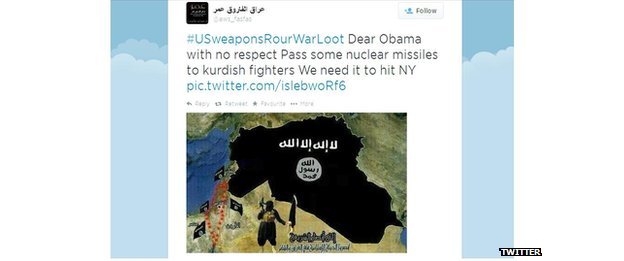In recent weeks, a handful of social media sites have made an earnest attempt at curbing the extremist rhetoric being posted online by Islamic State (IS) militants. Facebook and YouTube have been fairly successful with patrolling what content makes it to their sites, and most recently, Twitter has ramped up its patrol-watch by blocking accounts believed to be owned by the militants themselves.
The team behind social network site Diaspora, however, is having a much more difficult time, and it’s due in large part to how the network is set up. Diaspora is a user-owned, wholly distributed social network that consist of a group of independently owned nodes (referred to as “pods”) which users subscribe to, and which work with one another to form a larger network.
This sort of unique set-up means the site is not owned by one person or company, which allows it to be free of advertising and able to avoid any sort of corporate takeover.
The site was launched in 2010 after a successful crowdfunding campaign and as of March 2014, it has more than 1 million Diaspora accounts.
Now, the way in which Diaspora is set up makes it very difficult to monitor. You see, all of the different pods out there interoperating with one another makes the site itself a decentralized network. As a result, data is stored on several private servers which cannot be controlled by any single administrator.
Apparently IS militants are aware of this loophole, and have begun setting up accounts on the network now that Twitter has upped its efforts to block the spread of the group’s extremist material.
In a blog post, Diaspora’s creators wrote that they were “concerned” about these activities: “Various newspapers have reported that members of the Islamic State (IS) have set up accounts on Diaspora to promote the group's activities.
“In the past, they have used Twitter and other platforms, and are now migrating to free and open source software.”
The post went on to explain why the way in which the pods are set up, coupled with how there are several different servers supporting the site located all across the world, handcuffs them and their ability to stop the militant users from posting their material to the Diaspora site.
“There is therefore no way for the project's core team to manipulate or remove contents from a particular node in the network (which we call a “pod”),” according to the post. “This may be one of the reasons which attracted IS activists to our network.”
Diaspora’s executive team did state that since they cannot control the content being posted to their site from their main office, they will instead begin contacting the administrators of individual pods to make them aware of the problems associated with hosting extremist content, and stress the legal implications of posting this material post-warning.
“Because this is such a crucial issue, we have also accumulated a list of accounts related to IS fighters, which are spread over a large number of pods, and we are in the process of talking to the podmins of those pods.
“So far, all of the larger pods have removed the IS-related accounts and posts.”
The bigger challenge, the group stated, was locating extremist material in smaller pods and contacting these admins to ask that the material be taken down.
Story via BBC
Advertisement
Learn more about Electronic Products Magazine






